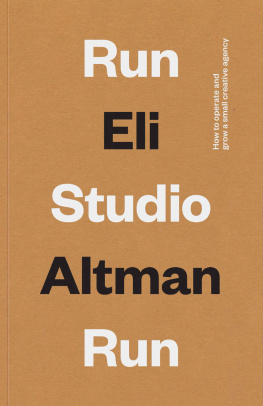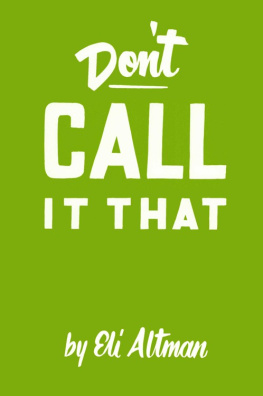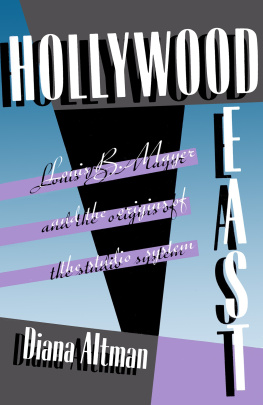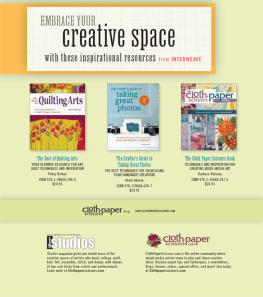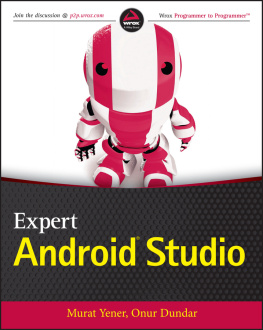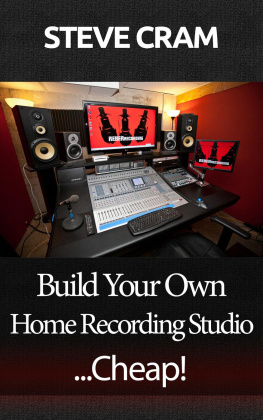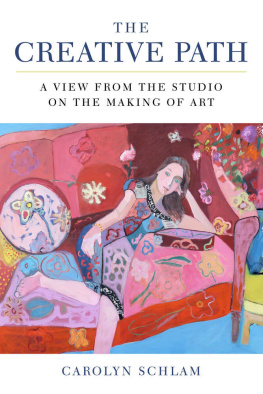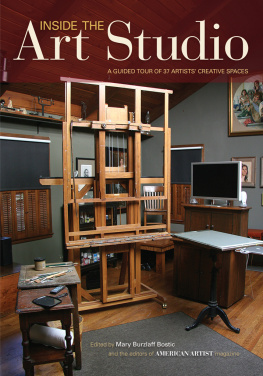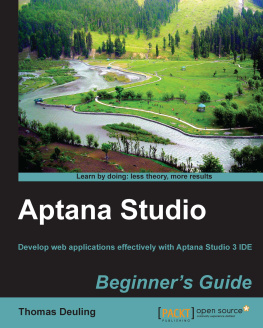Run Studio Run
How to manage and grow a small creative studio
by Eli Altman
For Rose and Ben
Are you talking to me?
Is this book for you? Since were just getting underway, now is as good a time as any to make sure were on the same page. Run Studio Run is written for people who have small (3-20-ish person) creative studios, or anyone who aspires to be in this category. The aim of the book is to give small studios the focus, process, and business development tools needed in order to build a thriving small business. Run Studio Run is not about how to make better creative work. There are plenty of resources out there for that already. This is all about the brass tacks: responsibilities, goals, delegation, competition, bookkeeping all of the practical realities of running a small studio.
We will answer questions like:
How many services should I offer?
How do we build processes for the work my team and I do every day?
How do I set goals for my business and my employees?
How should I define the responsibilities of my employees?
Are standard work hours important for my studio?
How can I stop wasting time doing administrative work?
How do I find work Ill be excited about?
Is this project worth my time?
How do I grow the studio without sacrificing quality?
How much should I charge for this project?
How do I develop a portfolio that attracts clients I want to work with?
...and lots more.
This book is not for freelancers, per se, although there are certainly several chapters freelancers will find useful. It is also not for big agencies. Once you reach a certain size (over 20 people or so) the process of retaining culture and cohesion, as well as how you approach things like management, hiring, and human resources, needs to change. Bigger ships make wider turns. Run Studio Run is here to help you run a tight ship while youre small and once youve got that down, you will be on your way to becoming an unstoppable force.
Who is this coming from?
Im the third generation of my family making a living doing creative work. When I was seven I drew the logo of every single American professional sports team. My grandfather was a painter and interior designer. He designed interiors for Brooklyn mobsters in the 50s. My father was a copywriter on Madison Avenue who founded Altman & Manley, the countrys first hybrid ad agency/design studio. He went on to start one of the worlds first naming companies, A Hundred Monkeys, which I run today. I graduated from the Design Media Arts program at UCLA, interned at Factor Design, and worked at MetaDesign, San Francisco, as a brand strategist. I developed the naming practice at Meta before moving on to A Hundred Monkeys in 2009.
When I started at A Hundred Monkeys the business was feast or famine. Wed have banner years followed by lean years where we had to lay people off. Creatively I felt very confident in what we were delivering. Clients liked our work and us. Some even came back for more. As a business however, we had a lot to learn. Our naming process changed from project to project. We didnt have goals, milestones, or clearly defined deliverables. We said yes to almost any project we thought we could execute regardless of whether we were straying outside our area of expertise. When we had lots of work we thought we were brilliant. When it dried up we had no idea where it went. We didnt have processes for sales or client retention. We had no clear division of labor. And yet there we were a lean, nimble company that had been around since 1990 and survived the tech bubble bursting and the stock market imploding.
My entire professional career I have worked for creative people. And as brilliantly creative as they were, running a business was never the focus. Often there was even a disdain for business: It was a bureaucratic drudgery that took you away from the delicate craft of creative endeavor. But I wanted to break out of this irregular feast or famine cycle we had been stuck in.
I had no shortage of theories about what was causing the ups and downs. Maybe our specialization was too niche. Maybe a naming company, no matter how successful, could only get to a certain size. But I met with clients every week who ran successful, growing businesses. I was envious. I wanted to run a growing business. At the very least I wanted to run a stable one. So I did the same thing I do whenever I feel like I dont know what Im doing. I started reading.
I read business book after business book. My friend Jeff Hyman, a professor at the Kellogg School of Management at Northwestern University, gave me a great list to get started. I dove into Wikipedia and Investopedia. I listened to small -business podcasts. I happened upon a Cal business school syllabus on the floor of a used bookstore in Berkeley and picked up the books I hadnt read yet. It was addictive. Even though the books were dry and often focused on other industries, I finished every book with specific improvements I could apply at A Hundred Monkeys. Every business book that found its way into my queue felt like potential energy for making the company run smoother and more efficiently.
In 2014 as I started to incorporate these practices and improvements, the business stabilized. In the beginning, there was a ton of data collection but it was easy to see that with some patience it would pay dividends. As we built frameworks around sales and client retention the business started to take off.
As of first publication of this book A Hundred Monkeys has been profitable each of the last 13 quarters and averaged 62 percent year-over-year growth during that same time period. We have roles, processes, and goals with plans to achieve them. And, as always, theres still plenty to improve upon.
I wrote this book because the vast majority of books Ive read and resources Ive found hadnt been created with the creative community in mind. While some concepts and improvements fit right in, others felt out of place or needed to be adapted. I was surprised to find the ways in which running a creative studio were similar to running a law firm or a startup. I was not surprised to find the ways in which it was different. Workflows, hiring, the ways we interact with clients all very un-lawyer-like.
I wanted to dive into the specifics of what works for creative studios. It took a lot of persistence, consultation, and trial and error to figure out approaches that worked and didnt compromise creativity.
So thats why I wrote this book. I believe that most creative studios can, with a little guidance, run much more profitable businesses. Running a business is a lot like having a brand. You have one whether you like it or not so you might as well put in the work to have a good one. I have included many of the tools and resources weve created and adapted to run A Hundred Monkeys.
Featuring insights from
Im confident that the way I run A Hundred Monkeys isnt the only way to run a creative studio. Thats why I interviewed 20 creative professionals and studio leaders from around the U.S. and the world. You will see their insights, commentary, and tips in the form of quotes throughout the book.
Christian Schwartz +
Paul Barnes
Commercial Type
New York / London
Mikey Burton
Los Angeles
Brent Couchman
Moniker
San Francisco


